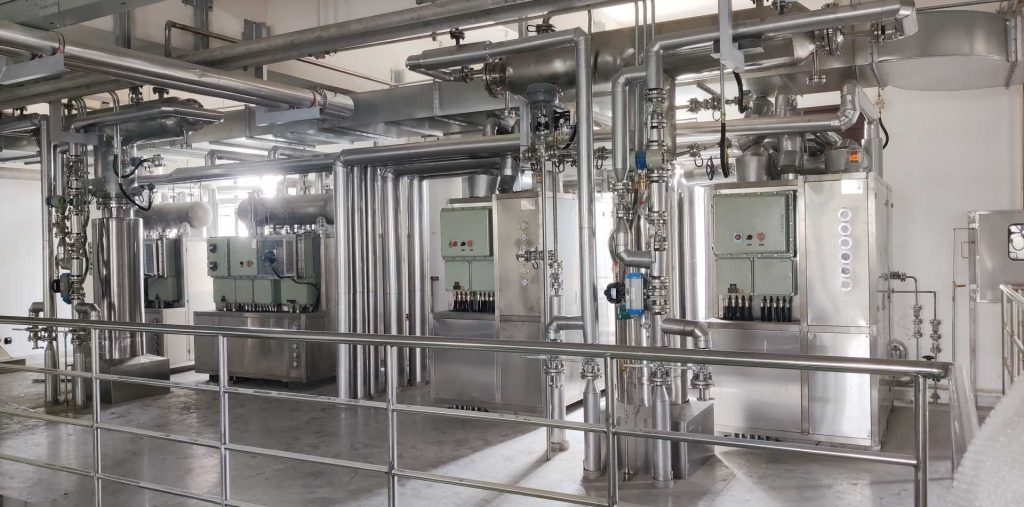WTD -70℃~200℃
204Heating Power 38kW~50kW Cooling capacity 12kW~50kW
View detailsSearch the whole station Pharmaceutical Chiller 产品分类菜单
Not all reactors need TCU, but most chemical reaction processes do require precise temperature control to ensure reaction efficiency, product quality and safety.
Situations where TCU is needed:
•Many chemical reactions are very sensitive to temperature and need to be carried out within a specific temperature range.
•Too high or too low a temperature may cause side reactions, affecting the purity and yield of the product.
•For reactions that require precise temperature control, TCU can provide high-precision temperature control to ensure that the reaction is carried out at the optimal temperature.
•Some reactions need to undergo temperature changes in a short period of time, such as thermal cycling reactions.
•TCU can quickly adjust the temperature to meet the needs of the reaction.
•Exothermic reactions generate a lot of heat, and TCU is needed to control the temperature to avoid runaway reactions.

In summary, the selection of a reactor cooling and heating temperature control system requires comprehensive consideration of the reactor’s specific needs, process characteristics, safety requirements, degree of automation, ease of maintenance, and other factors. It is recommended to consult a professional supplier or manufacturer to customize a suitable solution based on actual process requirements.
Heating Power 25kW~80kW Power range 2.3kW~10.5kW Material accuracy ±1℃
Heating Power 25kW~80kW Power range 2.3kW~10.5kW Material accuracy ±1℃
loading…
已经是到最后一篇内容了!
What kind of temperature control unit is needed for reactor integration system?Requirements for temperature control unit (TCU):Requirements for chiller heaters:Reactors Temperature Control Units To select the appropriate temperature control...
View detailsGlass Reactor Heating and Cooling Circulator Temperature Control UnitCOOLING HEATING CIRCULATOR Glass reactors require heating and cooling circulators during experiments because accurate control of reaction temperature is essential to ensur...
View detailsHeating Power 25kW~80kW Power range 2.3kW~10.5kW Material accuracy ±1℃
View details